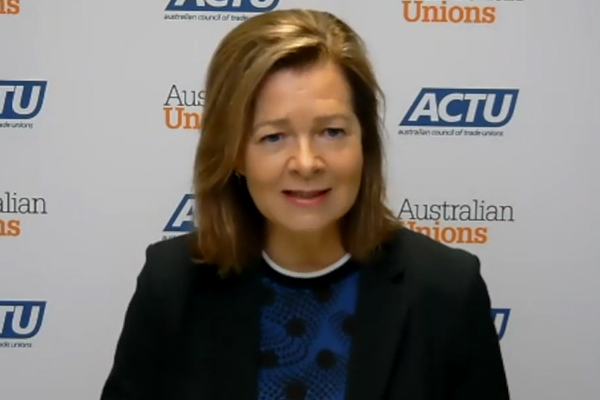Legislation to prevent wage theft is likely to be passed in Victoria, but its longevity is being threatened by Christian Porter, writes William Olson.
GOOD NEWS on the front to combat the epidemic of wage theft: legislation that served as the cornerstone of Victorian Premier Daniel Andrews’s re-election run in 2018 is likely to be pushed into law later this month.
The bad news: those laws, for as strong as they will be, may be quite fleeting in their staying power hopes if Attorney-General Christian Porter gets his way with federal-level legislation on behalf of the Morrison Government.
The State of Victoria’s Parliament, after months of painstaking research, consultations with union leaders and interviews with workers and business leaders alike, unveiled a draft of its anti-wage theft legislation late last year and put it to the state’s public for their feedback.
The Victorian proposal exists as a piece of far-reaching legislation. Penalties for wage theft offenders, for example, would fine companies $991,320 for each offence while individuals connected to transgressing companies and corporate decision-makers could face fines up to $198,264 for each offence as well as the risk of up to ten years of gaol time.
As stiff as those penalties alone are, there’s more:
- bosses will no longer be able to “pass the buck” or shift blame down the chain to those such as their accountant, payroll officer, or other managers or supervisors. No matter where the wage theft occurs, company managers – in a legislative desire to address and define accountability in leadership – will be liable for any and all offences and can face prosecution accordingly;
- there will be three different gaolable categories: theft of employee entitlements, falsification of employee records and the failure to keep an employee entitlement record. This would enforce companies to get on and stay on the books; and
- there would be an independent body of investigation and prosecution at work on any suspected wage theft cases, in the name of the Wage Inspectorate Victoria, backed by a dedicated criminal law enforcement arm.
While that was their discussion paper, Porter released one of his own on behalf of the Morrison Government in the final quarter of last year, where invited public submissions closed by the end of the year. And as a follow-up, another one was released last month.
It is only fair, for a reasonable comparison, to dot-point the highlights of Porter’s proposed anti-wage theft bill, based on information provided in each of those discussion papers.
Alas, there is none — at least not in the way of the same type of terms and conditions or numerical data for how heavy the fines would be or how long any incarcerations would last.
Instead, whereas Porter’s discussion papers have been light on the same penalty details to contrast what the Andrews Government has put forward in Victoria, they’ve instead been heavy on rhetoric and innuendo in their collective analysis — even when that analysis is Porter’s own, in an effort to sell it to the people.
Which in turn, performs a disservice to addressing the wage theft crisis and, ultimately, those affected by it.
Some highlights from Porter’s discussion papers:
- considering whether the courts should be granted greater powers to disqualify directors of companies where significant underpayments occur and mandating companies to “name and shame” themselves when they do;
- streamlining existing processes such as small claims federal, state and territory courts to encourage faster and cheaper outcomes;
- inquiring whether a formal role of mediation should be given to officials on the Fair Work Commission; and
- investigating the threshold of wage theft penalties as well as its impact on companies and their directors.
But as the State of Victoria’s proposed legislation targets any future act of wage theft, Porter’s bill only seeks to prosecute, in new cases, the most serious offences. The Attorney-General, who doubles as the Minister for Industrial Relations under Prime Minister Scott Morrison’s cabinet, feels that most mistakes are well-meaning, unintentional mistakes of a clerical nature.
Consider what Porter said in September, an assertion unlikely to have wavered in the six months between discussion papers:
“We do not want employers who make genuine mistakes and move swiftly to rectify them to end up with a criminal record.”
Try telling that to employees at major retailers Coles, Woolworth’s, Target, Bunnings and others whose wages and entitlements have been shortchanged over the course of a number of years, or in some cases, close to a decade. Which would put them in the same strata as not only the 500-odd hospitality workers formerly employed by celebrity chef George Calombaris who are now out of a job and the businesses of other celebrity chefs such as Heston Blumenthal and Neil Perry, as well as other smaller-level local neighbourhood hospitality establishments in either city or regional and country areas.
These thousands and thousands of workers may see their back wages and superannuation entitlements repaid – eventually – over time, but chances are good that not a single one of them will accept excuses of someone’s clerical errors or the so-called “genuine mistakes” not being picked up, or excuses of any other nature.
Especially when in either the Victorian or the federal bids, prosecutions will not be done retroactively. Effectively, those high-profile cases mentioned above will now go by as largely unpunished.
Therein lies why the tough, unflinching and objective nature of the State of Victoria’s proposed legislation appears to be a fit and proper way to deal with what is currently a full-blown epidemic in the industrial relations movement. And it should be a model for other states and, arguably, the Federal Government to follow.
However, if the Victorian legislation does pass, it may possess a shelf life of only three, six or up to 12 months if Porter’s anti-wage theft bill passes, something which Porter himself has said the reality of such was “weeks away”, or what he has previously determined to occur ahead of May’s annual Federal Budget unveiling.
That is simply because, under Section 109 and Section 122 of the Australian Constitution, federal laws can overtake similarly-targeted state or territory legislation — even with no regard to states’ rights or how much incrementally tougher states’ legislation may be over any Federal Government’s doctrines.
However, Section 109 has also been interpreted to mean that where state and federal laws conflict, the state version of such a law would be rendered as invalid ‘to the extent of the inconsistency’. If that’s the case, then these two duelling anti-wage theft proposals could keep lawyers on the industrial relations and Constitutional fronts busy for many months to come.
Which, in itself, would keep the nation’s workers affected by the perils of wage theft trapped in a further state of purgatory. And they do not deserve to feel or endure further levels of victimisation.
William Olson is a freelance journalist and hospitality professional. You can follow William on Twitter @DeadSexyWaiter.
 This work is licensed under a Creative Commons Attribution-NonCommercial-NoDerivs 3.0 Australia License
This work is licensed under a Creative Commons Attribution-NonCommercial-NoDerivs 3.0 Australia License
Support independent journalism Subscribe to IA.












